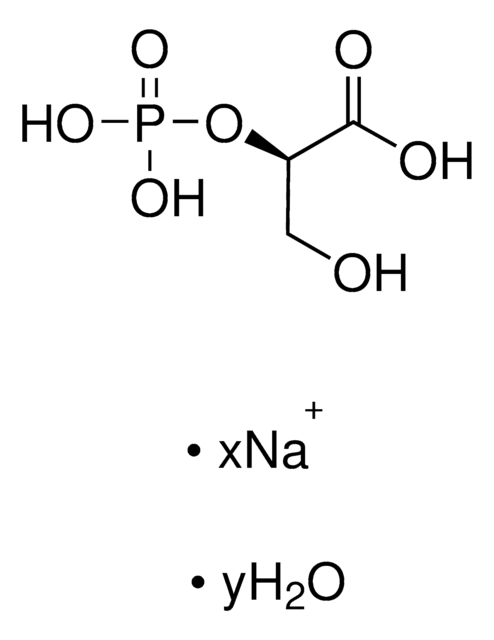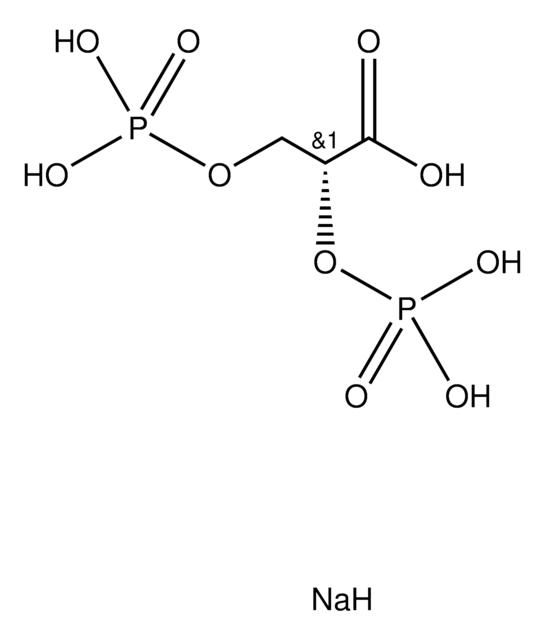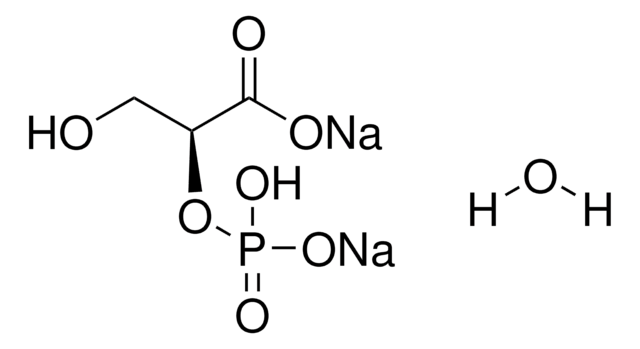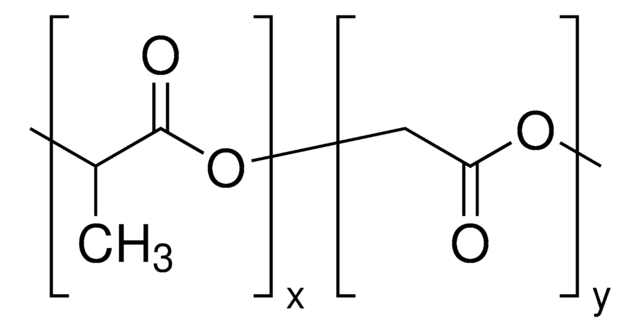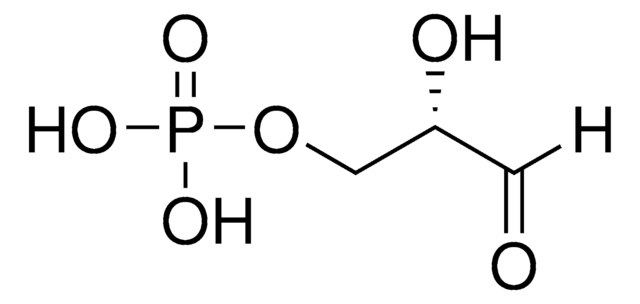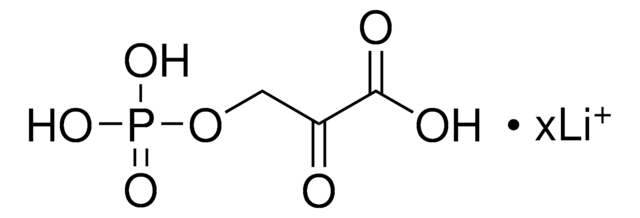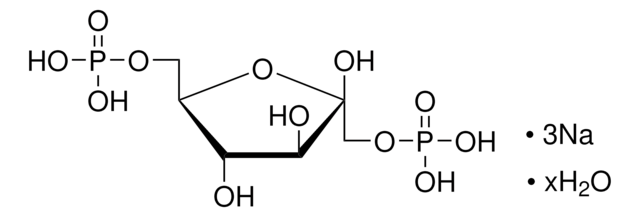P8877
Acide D-(−)-3-phosphoglycérique disodium salt
≥93% dry basis (enzymatic), powder
Synonyme(s) :
D-3-Phosphoglycérate (−)-disodique, D-Glycérate 3-phosphate disodium salt
About This Item
Produits recommandés
Source biologique
synthetic (inorganic)
Niveau de qualité
Essai
≥93% dry basis (enzymatic)
Forme
powder
Caractéristiques du produit alternatif plus écologique
Atom Economy
Design for Energy Efficiency
Use of Renewable Feedstocks
Learn more about the Principles of Green Chemistry.
sustainability
Greener Alternative Product
Impuretés
<14% water (NMR)
Couleur
white
Solubilité
H2O: 50 mg/mL, clear, colorless to faintly yellow
Traces de cations
Na: 18-22% (dry basis)
Autre catégorie plus écologique
Température de stockage
−20°C
Chaîne SMILES
[Na+].[Na+].O[C@H](COP(O)([O-])=O)C([O-])=O
InChI
1S/C3H7O7P.2Na/c4-2(3(5)6)1-10-11(7,8)9;;/h2,4H,1H2,(H,5,6)(H2,7,8,9);;/q;2*+1/p-2/t2-;;/m1../s1
Clé InChI
RGCJWQYUZHTJBE-YBBRRFGFSA-L
Vous recherchez des produits similaires ? Visite Guide de comparaison des produits
Application
Actions biochimiques/physiologiques
Autres remarques
Mention d'avertissement
Warning
Mentions de danger
Conseils de prudence
Classification des risques
Eye Irrit. 2 - Skin Irrit. 2 - STOT SE 2 - STOT SE 3
Organes cibles
Eyes,Central nervous system, Respiratory system
Code de la classe de stockage
11 - Combustible Solids
Classe de danger pour l'eau (WGK)
WGK 3
Faites votre choix parmi les versions les plus récentes :
Déjà en possession de ce produit ?
Retrouvez la documentation relative aux produits que vous avez récemment achetés dans la Bibliothèque de documents.
Les clients ont également consulté
Articles
Learn about monosaccharide biosynthesis and the metabolism of monosaccharides. A unit of a carbohydrate and the simplest form of a sugar, a monosaccharide cannot be hydrolyzed into a simpler compound.
Review the 10 steps of glycolysis in the Embden-Meyerhof-Parnas glycolytic pathway. Easily compare reaction stages and buy the enzymes for your life science research.
Neoplastic cells are highly dependent on the de novo synthesis of nucleotides to maintain sufficient pools to support DNA replication and the production of RNA.
We presents an article about the Warburg effect, and how it is the enhanced conversion of glucose to lactate observed in tumor cells, even in the presence of normal levels of oxygen. Otto Heinrich Warburg demonstrated in 1924 that cancer cells show an increased dependence on glycolysis to meet their energy needs, regardless of whether they were well-oxygenated or not.
Notre équipe de scientifiques dispose d'une expérience dans tous les secteurs de la recherche, notamment en sciences de la vie, science des matériaux, synthèse chimique, chromatographie, analyse et dans de nombreux autres domaines..
Contacter notre Service technique


